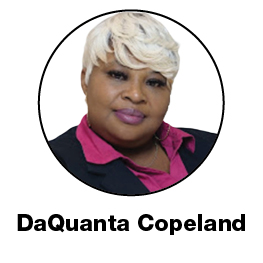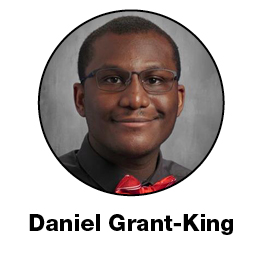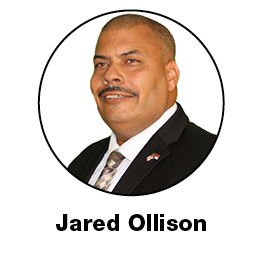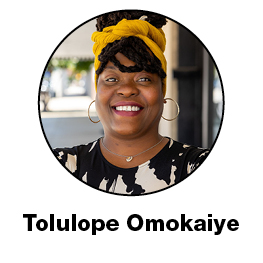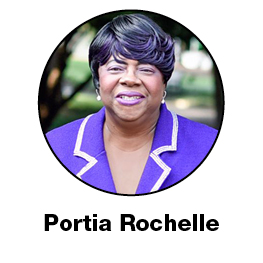Voter Guide – 2024 – District C
Our Voter Guide provides candidate responses to voter concerns gathered from our citywide poll.
For incumbents, relevant Council record items are included.
Click on candidate images to view their Full Questionnaire Answers
See Poll Findings Here: Polling Results
Finding More Details
If you don’t see an issue you care about addressed for an individual candidate, they may not have addressed the issue in the answers they gave in response to our questionnaire. Click on a candidate’s image to review their full responses.
Restoring Confidence in Council
Declining confidence in Council marked one of the biggest changes from two years ago. In our new poll, 73% of voters said the city does not do a good job of keeping residents informed, up substantially from 49% in 2022. The undue influence of special interests is still a big concern, with 71% of voters saying the city is still too beholden to developers. To correct that imbalance, 73% of 2024 voters said Council campaign donations should be capped at $500. Only 23% of voters approve of Council doubling their terms to four years. (See Questionnaire Items Q1 – Q6)
Branch(Incumbent)– There is room for improvement in keeping voters informed. New Community Engagement Office is a step forward. Need to better communicate that the City is holding developers to higher standards. Reducing the influence of money in politics may require campaign finance reform. Supports vote for 4-year terms. Sees no ethical problem with Council’s action to secretly add a year to their terms. Maintains the issue was publicly discussed before the vote.
Record in office– In 2021, voted to permanently move elections to even years adding a 3rd year to the council term with no public notice or input. In 2024, voted to move to 4-year terms even though every time the council asked the residents their preference, the public OPPOSED moving to 4-year terms. As to the most recent issue with the Red Hat Amphitheater, Branch is the liaison to the Raleigh Convention & Performing Arts Centers. As such, should have been fully aware of the plans for moving the amphitheater and kept BOTH the residents and other councilors up to date on the issue. There is no excuse for the council saying they only recently were made aware of the need to close South St.
Copeland– Staff is trying to improve public engagement and more progress is needed. Some Councilors have worked to limit public input that might hinder special interests. Recent amphitheater debate suggests District C Councilor does not believe in “Community Benefit” or “Community Engagement” of impacted neighborhoods. Some Councilors are too beholden to developers and other special interests and don’t protect their constituents. Agrees with 4-year terms, but understands the pros & cons. Opposes Council’s action to secretly add a year to their terms, especially the District C Councilor’s decision not to give his constituents a voice in the matter.
DeCosta– did not respond to our questionnaire.
Grant-King– Council needs to improve communication with residents. The amphitheater debate is an example of poor communication that made it difficult to find a comprehensive & coordinated entertainment district yielding greater community benefits. The city is too beholden to developers, leading to gentrification, degradation of community character, inequality & displacement of vulnerable populations. Need more transparency, accountability, and public input in community affairs. Supports donor caps as a way to safeguard the democratic process and restore public trust.
Ollison– Strong support for more Council transparency. Council has become autocratic, unreceptive to voters & opaque in their actions. City is too beholden to developers. Will not accept donations from developers or real estate firms. Supports a donor cap. Will make a motion to return to 2-year terms. Any change should be decided by the voters. Admires Gov. Cooper for publicly chastising the Council for poor ethics in secretly extending their terms by a year with no public input & no public vote.
Omokaiye– Improvement is needed in community engagement. Current outreach often has a predetermined agenda. Agrees with voter perception that the city is too beholden to developers and adds that vulnerable populations suffer most. Supports 4-year terms as a better way to promote local democracy. Strongly opposes Council’s action to secretly add a year to their terms.
Rochelle– The city does not do a good job of keeping residents informed, especially those without internet access. Agrees that the city is too beholden to developers. This undue influence disproportionately gentrifies and displaces low-income citizens. Council seems ignorant of these concerns. Supports a donor cap. Supports two year terms and thinks Council should have put the matter to a voter referendum. Strongly opposes Council’s action to secretly add a year to their terms, calling it an unethical abuse of power that increased voter distrust of Council.
Empowering Residents
In the 2022 election citizen engagement was a top campaign issue. Our polling has found that the city has gotten worse at keeping residents informed since then. 73% say the city does a poor job of keeping residents informed compared to 49% in 2022. 74% of respondents say neighborhood rezoning meetings should be returned from developer control to CACs. (See Questionnaire Items Q7 – Q10)
Branch(Incumbent)– CACs should control rezoning meetings to enhance transparency, ensure community input, and build trust in the rezoning process. Committed to restoring and improving inactive CACs, especially in minority neighborhoods. Restoration process would include active outreach to find leaders and provide resources and training. Will work diligently to make this a reality. Commits to restoring the support eliminated in 2020, including preferred monthly meeting space, meeting technology support, city website support for CACs and innovative ways to ensure inclusivity and accessibility in community forums. Is committed to establishing city support with the department that can best serve CAC needs.
Record in office– Voted against defunding the CACs in 2020 although he did NOT alert Distrcit B Councilor Cox, who was kept in the dark about the action that was coming. While saying all the right things here, hasn’t actively led on this at any time since the city defunded CACs. In Feb 2024, voted to reinstate CACs but has taken no concrete action to make that happen since. Holds regular District C community meetings to engage with constituents.
Copeland– All stakeholders should have a voice in neighborhood rezoning meetings. Will meet with CAC leaders regularly and ensure they are fully supported and funded. There should be a strong collaboration between the CACs and city’s Housing & Neighborhoods Department.
DeCosta– did not respond to our questionnaire.
Grant-King– CACs should control rezoning meetings to make the process more democratic and transparent. It is imperative to prioritize restoring CACs and improving these essential community engagement platforms. Proposes a comprehensive, data driven plan to revitalize inactive CACs with funding and resources, promoting diversity and inclusivity, and with accountability measures to track CAC performance, all to foster a more inclusive and empowered local governance system. Firmly supports restoring and improving the partnership between CACs and the city’s Housing and Neighborhoods Department.
Ollison– CACs should control rezoning meetings. Firmly supports restoring inactive CACs. Firmly supports restoring full CAC support and re-establishing the relationship with Housing & Neighborhoods Department.
Omokaiye– CACs should share control of rezoning meetings with developers for better transparency & equitability. CACs should be returned to the core of community engagement, with quarterly presentations to Council and with leadership including development & other diverse stakeholders. Restore and improve CAC resources. Supports restoring longstanding city partnerships.
Rochelle– Developers should not control neighborhood zoning meetings. Residents’ concerns should be heard. Will reach out to District C residents and encourage them to participate in the CACs. Will work to restore resources for effective CACs, with full staff support. Effective CACs make residents feel like their concerns matter.
Mitigating Growth Impacts
Raleigh’s Missing Middle rules were another big issue in the 2022 election. Our poll shows only 29% of voters support these new rules. Criticisms include failing to inform the public about rules affecting their most important investment and enacting rules promoting market profitability at the expense of best practices that would incentivize affordability, neighborhood compatibility and walkable access to transit. (See Questionnaire Items Q15 – Q18)
Missing Middle was a prominent issue in the 2022 election. Four new members of council (Black, Patton, Harrison and Jones) were elected on promises of reforms and/or repeal. The other current councilors (Melton, Forte and Branch) all voted in favor of implementing the Missing Middle policies during the previous council. There has been little to no meaningful action taken in the nearly two years since the current council was seated. Council has been hiding behind the two lawsuits that have been filed against the city on the issue saying they can’t discuss Missing Middle in public while the lawsuits are ongoing.
We disagree. One lawsuit was about a specific project and its failure to meet the city’s UDO (Unified Development Ordinance) provisions for Compact Subdivisions. This suit was resolved AGAINST the city in July. The other suit, still outstanding, is against the city for alleged failure to properly notify affected property owners of proposed Missing Middle changes. To date the court has denied all attempts by the city to have this suit dismissed.
We see no reason why either of these suits should have stopped any public discussion of reforms for Missing Middle. Neither of the suits is about the Missing Middle policies. In March 2023, the Planning Director told the council they could Repeal or Reform Missing Middle. Watch: Time for reform
Branch(Incumbent)– Committed to ensuring infrastructure keeps pace with growth. Focused on managing growth to balance economic development with maintaining the quality of life that residents value. Recognizes the need for better communication and adjustments in the Missing Middle infill rules. Commits to working with the Council to refine policies around infill development and ensure residents are informed and involved in the process. Commits to abide by NCOD, HOD and Area Plan guidance and regulations.
Record in office– Promised the neighbors of Woodcrest that he would do everything possible to correct the unintended consequences of Missing Middle zoning. Has done nothing and those neighbors are now being sued by a developer to eliminate their neighborhood covenants. (click to read story) While committed to abiding by NCOD, HOD and Area Plan Guidance, voted to remove property from the Prince Hall HOD and to rezone Shaw University property which is located in a protective Downtown Transition Area.
Copeland– Infrastructure is mostly keeping up with growth, except the already high housing deficit. Agrees that growth is coming at the expense of our quality of life. Proposes home rehab & preservation incentives, increase income allowable for tax breaks, and incentivize businesses paying living wages. Supports educational opportunities near neighborhoods for a strong partnership with the county to provide social & economic self sufficiency resources such as financial literacy, budgeting, and mindset course. Supports Missing Middle infill rules to redress exclusionary zoning.
DeCosta– did not respond to our questionnaire.
Grant-King– In order to redress growth impacts, prioritize sustainable growth and development, invest in public transportation infrastructure to reduce congestion, promote affordable housing initiatives to combat rising costs, implement stricter environmental regulations to protect natural resources, and foster community engagement to ensure that growth is inclusive and benefits all residents. Balance economic expansion with social and environmental well-being. Missing Middle infill rules need improvement: increase transparency by conducting thorough community engagement, educate residents about the rationale behind the rules, and actively seek input to address their concerns. Implement mechanisms for affordable housing incentives, with neighborhood compatibility through design guidelines, and better access to public transportation to help balance the goals of densification with community needs and build trust with voters. Respect adopted NCODs, HODs & Area Plans.
Ollison– The city has failed to keep up with infrastructure needs. The City Council needs to focus on maintaining and improving the infrastructure we have and spend less time on growing the community for others to move here. Respect adopted NCODs, HODs & Area Plans.
Omokaiye– Raleigh’s infrastructure priorities are misguided and counterproductive. Implementing BRT in the New Bern corridor first seemed designed to continue historic patterns of vulnerable neighborhood gentrification and dislocation, removing the very transit riders that need transit most. Rapid growth is increasing problems with inadequate affordable housing, increasing cost of living and declining quality of life. The lack of public input has increased opposition to Missing Middle infill rules. Its negative impacts have been greatest in marginalized and vulnerable communities. Respect adopted NCODs, HODs & Area Plans.
Rochelle– Agrees with voter perception that infrastructure is not keeping up with growth. Growth is beneficial, but not at the cost of displacement, hardship and impoverishment. The way Missing Middle infill rules were implemented did not encourage public input that could have identified incentives to promote economics, health, housing, and transportation needs. Restore voter confidence by giving the public a voice in decisions. Will commit to abide by NCOD, HOD and Area Plan guidance and regulations.
Expanding Affordable Housing
Raleigh’s highly ranked growth rate has increased the cost of living in Raleigh, with low and fixed income households being especially hard hit. Given the strong voter sentiment that current efforts are not keeping up with Raleigh’s deepening affordable housing crisis, what changes you would enact – beyond existing programs? What measurable goals and performance tracking would you set so the public can hold Council and staff accountable on this top issue? (See Questionnaire Item Q19)
Branch(Incumbent)– Addressing the affordable housing crisis is a top priority. Focused on tracking the success of new initiatives, like the pilot program for housing the unhoused, and ensuring clear communication and transparency about goals and progress. Holding the Council and staff accountable is key to making real progress.
Record in office– While supporting affordable development in his district, he has not been a leader in encouraging affordable housing in market rate developments elsewhere.
Copeland– Supports a list of measures to increase affordable housing: develop city owned land, expand tax credit development partnerships, increase grant funds for new low-income housing and preservation, increase allowable income for tax breaks up to a living wage, lower tax rates for retirees, seniors and disabled in lower income communities, first-time homeowners’ down-payment assistance for disabled and retirees, increase down payment assistance while decreasing minimum AMI requirement.
DeCosta– did not respond to our questionnaire.
Grant-King– Raleigh’s affordable housing crisis is a top priority. Key initiatives include: establish a city housing trust fund, Implement mandatory inclusionary zoning policies, expand tenant protections and rental assistance programs, increase resources for home repair and weatherization, streamline the development approval process for affordable housing projects. Set, track and publish measurable goals: increase the number of affordable housing units by a specific percentage each year, decrease the percentage of households spending over 30% of their income on housing, track the number of affordable housing projects approved and completed annually, and monitor the number of residents benefiting from rental assistance and home repair programs.
Ollison– Proposes a resource center to reduce dislocation and gentrification, builder partnerships to increase affordable housing supply, will work to attract living wage jobs. Would track performance of all these measures.
Omokaiye– Need disparity study to understand root causes before setting goals and performance measurements for improving housing affordability.
Improving the City Budget Process
In our citywide poll, only 1 in 4 voters said this year’s city budget reflects their priorities. What would you do to improve voter satisfaction with future city budgets? (See Questionnaire Items Q11 – Q14)
Branch(Incumbent)– The city needs to improve public input in the budget process so the budget aligns better with community priorities. Supports transparency in the Manager’s review. Top budget priority is having more discussion about fair and equitable distribution of funds. Supports partnering with Wake County to develop non-police emergency response teams.
Copeland– Proposes budget breakdown: Raleigh Water 30%, Transportation 20%, Parks, Recreation & Cultural Resources 7%, General Public Improvements 10%, Housing 27.9%, Stormwater Management 2.5%, Convention & Performing Arts Complex 1.5%, Solid Waste Services .6%, Technology .5%. The City Manager is beholden to the Council and the mayor and if we elect representatives that didn’t have such special interest in their leadership then it would be easier to measure the effectiveness and mission of the City Manager. Housing should be a top funded item within the city’s budget. Public safety officers should receive competitive pay and fund their own insurance to cover misconduct settlements. Fully fund non-police emergency response teams.
DeCosta– did not respond to our questionnaire.
Grant-King– Proposes strategies to improve voter satisfaction with city budgets: increase transparency and public input in budget process, provide user-friendly budget information platform, foster collaboration between city and residents to align budget with priorities and needs of residents. Supports developing and sharing objective performance goals for the Manager in the city’s Strategic Plan. Provides an extensive list of progressive budget priorities and tools for ensuring resources are distributed fairly. Adequate pay for public safety employees is essential for effective services. Supports non-police emergency response teams. Misconduct settlements highlight the need for improved training and oversight.
Ollison– Need more extensive public engagement with Council in the budget process. Should develop and publish objective performance goals for the Manager and make the evaluation public before annual salary deliberations. Council needs to reduce the tax rate and have a comptroller to trim waste in order to fund homelessness assistance. Reduce tax breaks for developers. Supports non-police emergency response teams. City should settle misconduct claims.
Omokaiye– Transparent community engagement via the newly activated CACs will bring budget priorities into focus and restore trust in local government. Supports performance goals for the Manager and all departments that measure a broad base of metrics. We need better employee pay, especially for essential workers. Need more funding for transit infrastructure, employees and future multimillion dollar deficit. Supports improved non-police response teams. Police misconduct should be more closely tracked and settlements not paid by taxpayers.
Rochelle– Residents should have a stronger voice in setting city budget priorities. Every employee should have a clear and systematic way to measure performance, especially the Manager. The Manager’s performance criteria should be public. Specific budget changes should include more funding for low-income housing, pay equity for employees & funding for CACs. Employee pay has not kept up with the cost of living, impacting morale and performance. Non-police emergency response teams are needed to respond to mental health issues. Funds set aside for misconduct settlements should be spent on non-police response and affordable housing.
Improving Our Environment
Promoting urban densities can conflict with environmental protection, such as clearcutting forested land, including infill and teardown lots. What are your key considerations for deciding if the growth benefits of a project outweigh environmental impacts? (See Questionnaire Items Q20 – Q21)
Branch(Incumbent)– Balancing growth and environmental protection, especially tree conservation, is one of the city’s biggest challenges. Plans to strengthen enforcement of existing policies and enhance homeowner education. Will collaborate with environmental organizations to explore new green initiatives.
Record in office– Branch has taken no concrete action to make this happen in any meaningful way. Voted to rezone a property in the Falls Lake Watershed.
Copeland– Preserve and replace trees, reduce flooding and stormwater runoff and increase sewer funding. New development should provide adequate trees and environmental substance.
DeCosta– did not respond to our questionnaire.
Grant-King– Identifies an extensive list of environmental and climate challenges, along with sustainable growth planning and resource protection initiatives to overcome those challenges and protect the environment for future generations.
Ollison– Emphasizes recycling and green energy for city facilities and tax credits to promote solar installations. Need a growth/enviro balance that does more to protect streams and waterways.
Omokaiye– Car emissions and stormwater runoff have a heavy impact on our environment. Incentivize or mandate more eco-friendly practices and materials used in development projects. To find best growth/enviro balance we need to understand the long-term economic and environmental impacts, with care to avoid impacting marginalized populations.
Local Government Experience
Each Candidate’s campaign website is listed. We also include here any experience a candidate has in Raleigh government whether as a member of City Council or a member of any of the city Boards and Commissions.
Branch(Incumbent)– coreybranch.com
Elected to City Council District C in 2015. Re-elected in 2017, 2019 & 2022.
Copeland– daquantacopeland.com
DeCosta– tomaraforraleigh.com
Grant-King– danielgrantkingforraleigh
Ollison– jaredollisonforraleigh.com
Omokaiye– omokaiyeforoakcity.com
Served on the Raleigh Transit Authority from 2016 through 2023. Served as Chair from 2018 through 2023.
Rochelle– rochelleforraleigh.com
Appointed to the Raleigh Human Relations Commission in 2023.


